Regulierung internationaler Finanzmärkte und Banken
Diese Forschungsgruppe analysiert Ursachen und Konsequenzen von internationalen Aktivitäten von Banken sowie den regulatorischen Rahmen, innerhalb dessen globale Banken operieren.
International aktive Banken können eine effiziente internationale Kapitalallokation vereinfachen und zur internationalen Risikoteilung beitragen. Allerdings können sie auch Instabilitäten generieren und zu einer Übertragung von Schocks über nationale Grenzen hinaus beitragen. Dies ist einer der Gründe für die aktuelle Re-Regulierung des internationalen Bankensystems.
Die Forschungsgruppe trägt auf drei verschiedenen Wegen zur Literatur bei. Erstens analysiert die Gruppe empirisch, warum internationale Banken global aktiv sind und wie Schocks im Finanzsystem übertragen werden. Zweitens untersucht die Gruppe das Entstehen von systemischen Risiken und Ungleichgewichten im integrierten Bankenmarkt und die sich daraus ergebenden Konsequenzen für die Realwirtschaft. Drittens werden die Auswirkungen von Änderungen bezüglich der Bankenaufsicht und Bankenregulierung analysiert, mit einem besonderen Fokus auf dem europäischen Integrationsprozess
IWH-Datenprojekt: International Banking Library
Forschungscluster
Wirtschaftliche Dynamik und StabilitätIhr Kontakt

Mitglied - Abteilung Finanzmärkte
PROJEKTE
07.2017 ‐ 12.2022
Die politische Ökonomie der europäischen Bankenunion
Europäischer Sozialfonds (ESF)
Ursachen für nationale Unterschiede in der Umsetzung der Bankenunion und daraus resultierende Auswirkungen auf die Finanzstabilität.
01.2015 ‐ 12.2017
Dynamic Interactions between Banks and the Real Economy
Deutsche Forschungsgemeinschaft (DFG)
Referierte Publikationen
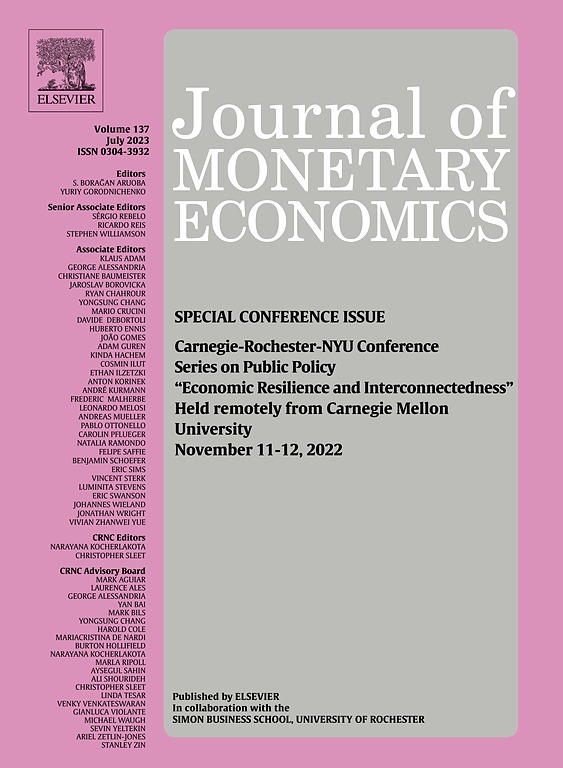
Lending Effects of the ECB’s Asset Purchases
in: Journal of Monetary Economics, December 2020
Abstract
Between 2010 and 2012, the European Central Bank absorbed €218 billion worth of government securities from five EMU countries under the Securities Markets Programme (SMP). Detailed security holdings data at the bank level affirms an effective lending stimulus due to the SMP. Exposed banks contract household lending, but increase commercial lending substantially. Holding non-SMP securities from stressed EMU countries amplifies the commercial lending response. The SMP also improved liquidity buffers and profitability without compromising credit quality.
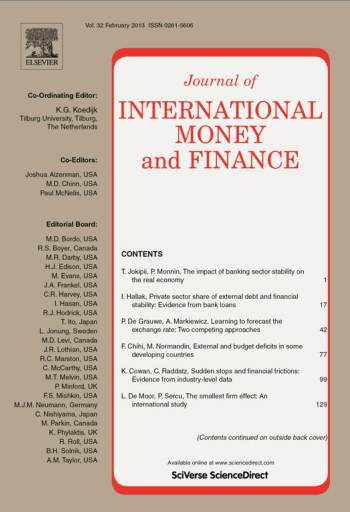
The Impact of Social Capital on Economic Attitudes and Outcomes
in: Journal of International Money and Finance, November 2020
Abstract
This article traces the extant literature on the impact of social capital on economic attitudes and outcomes. Special attention is paid to clarify conceptual ambiguities, measurement techniques, channels of influence, and identification strategies. Insights derived from the literature are then used to analyze the marketplace lending industry in China, where the size of the peer-to-peer (P2P) lending market is larger than that of the rest of the world combined. Ironically, approximately two-thirds of these online P2P lending platforms have failed. Empirical evidence from the monthly operating data of 735 lending platforms and transaction level data from one prominent platform (Renrendai) shows that platforms in provinces with high social capital have low risk of failure, and borrowers in provinces with high social capital can borrow at low interest rate and are less likely to default. We also provide observations to guide future economic research on social capital.

Finance and Wealth Inequality
in: Journal of International Money and Finance, November 2020
Abstract
Using a global sample, this paper investigates the determinants of wealth inequality capturing various economic, financial, political, institutional, and geographical indicators. Using instrumental variable Bayesian model averaging, it reveals that only a handful of indicators robustly matters and finance plays a key role. It reports that while financial depth increases wealth inequality, efficiency and access to finance reduce inequality. In addition, redistribution and education are associated with lower inequality whereas wars and openness to international trade contribute to greater wealth inequality.
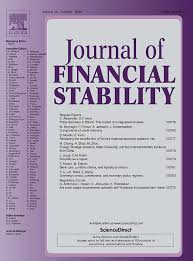
Are Bank Capital Requirements Optimally Set? Evidence from Researchers’ Views
in: Journal of Financial Stability, October 2020
Abstract
We survey 149 leading academic researchers on bank capital regulation. The median (average) respondent prefers a 10% (15%) minimum non-risk-weighted equity-to-assets ratio, which is considerably higher than the current requirement. North Americans prefer a significantly higher equity-to-assets ratio than Europeans. We find substantial support for the new forms of regulation introduced in Basel III, such as liquidity requirements. Views are most dispersed regarding the use of hybrid assets and bail-inable debt in capital regulation. 70% of experts would support an additional market-based capital requirement. When investigating factors driving capital requirement preferences, we find that the typical expert believes a five percentage points increase in capital requirements would “probably decrease” both the likelihood and social cost of a crisis with “minimal to no change” to loan volumes and economic activity. The best predictor of capital requirement preference is how strongly an expert believes that higher capital requirements would increase the cost of bank lending.
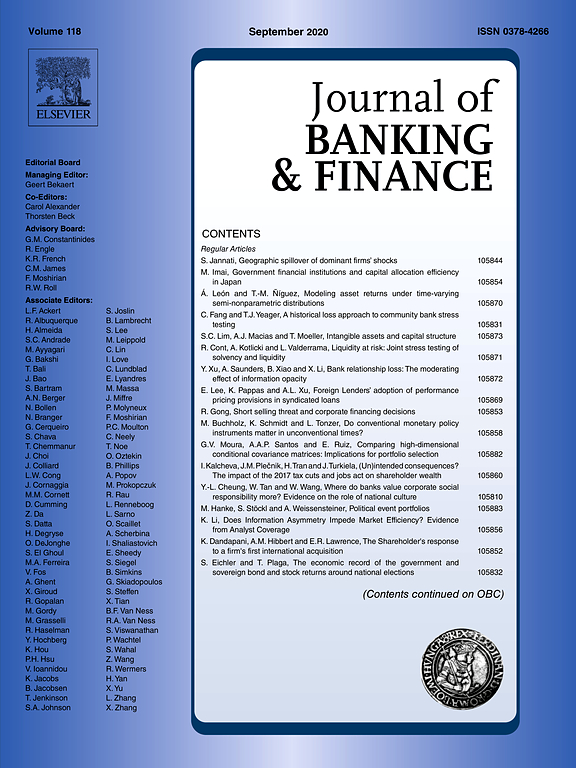
Do Conventional Monetary Policy Instruments Matter in Unconventional Times?
in: Journal of Banking and Finance, Nr. 105874, September 2020
Abstract
This paper investigates how declines in the deposit facility rate set by the ECB affect euro area banks’ incentives to hold reserves at the central bank. We find that, in the face of lower deposit rates, banks with a more interest-sensitive business model are more likely to reduce reserve holdings and allocate freed-up liquidity to loans. The result is driven by banks in the non-GIIPS countries of the euro area. This reveals that conventional monetary policy instruments have limited effects in restoring monetary policy transmission during times of crisis.
Arbeitspapiere
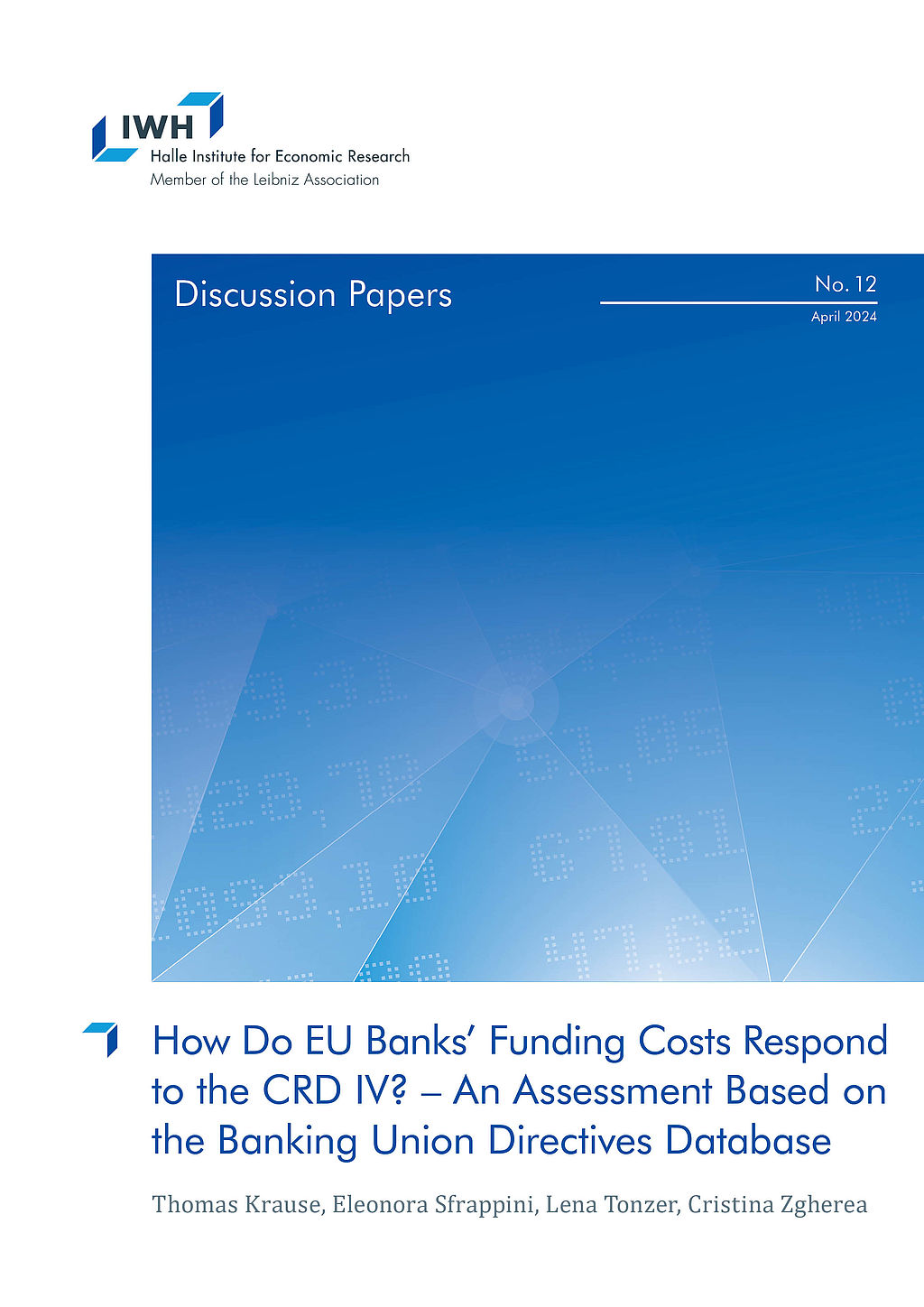
How Do EU Banks’ Funding Costs Respond to the CRD IV? An Assessment Based on the Banking Union Directives Database
in: IWH Discussion Papers, Nr. 12, 2024
Abstract
The establishment of the European Banking Union constitutes a major change in the regulatory framework of the banking system. Main parts are implemented via directives that show staggered transposition timing across EU member states. Based on the newly compiled Banking Union Directives Database, we assess how banks’ funding costs responded to the Capital Requirements Directive IV (CRD IV). Our findings show an upward trend in funding costs which is driven by an increase in cost of equity and partially offset by a decline in cost of debt. The diverging trends are most present in countries with an ex-ante lower regulatory capital stringency, which is in line with banks’ short-run adjustment needs but longer-run benefits from increased financial stability.
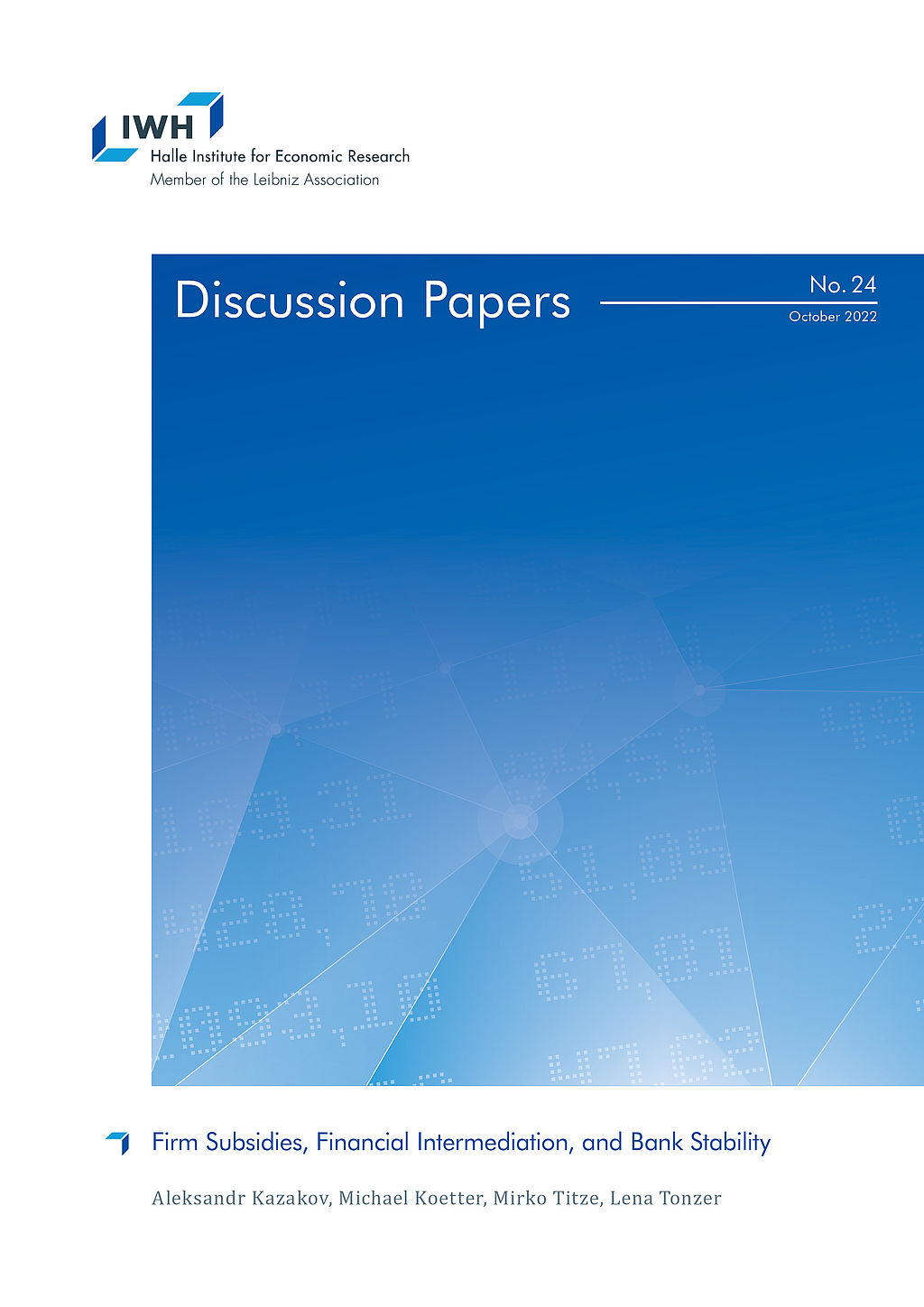
Firm Subsidies, Financial Intermediation, and Bank Stability
in: IWH Discussion Papers, Nr. 24, 2022
Abstract
We use granular project-level information for the largest regional economic development program in German history to study whether government subsidies to firms affect the quantity and quality of bank lending. We combine the universe of recipient firms under the Improvement of Regional Economic Structures program (GRW) with their local banks during 1998-2019. The modalities of GRW subsidies to firms are determined at the EU level. Therefore, we use it to identify bank outcomes. Banks with relationships to more subsidized firms exhibit higher lending volumes without any significant differences in bank stability. Subsidized firms, in turn, borrow more indicating that banks facilitate regional economic development policies.
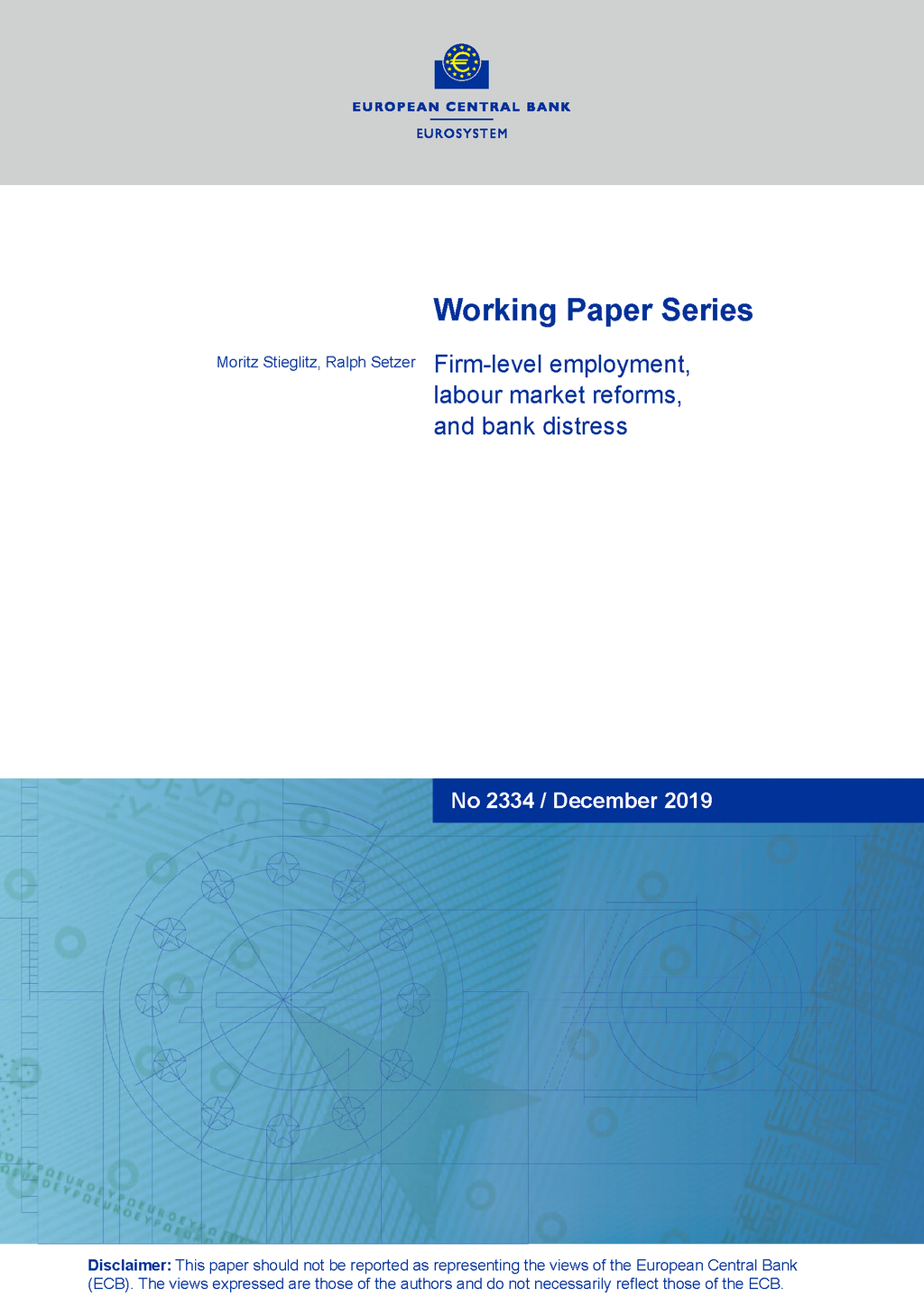
Climate Change-Related Regulatory Risks and Bank Lending
in: ECB Working Paper, Nr. 2670, 2022
Abstract
We identify the effect of climate change-related regulatory risks on credit real-location. Our evidence suggests that effects depend borrower's region. Following an increase in salience of regulatory risks, banks reallocate credit to US firms that could be negatively impacted by regulatory interventions. Conversely, in Europe, banks lend more to firms that could benefit from environmental regulation. The effect is moderated by banks' own loan portfolio composition. Banks with a portfolio tilted towards firms that could be negatively a affected by environmental policies increasingly support these firms. Overall, our results indicate that financial implications of regulation associated with climate change appear to be the main drivers of banks' behavior.
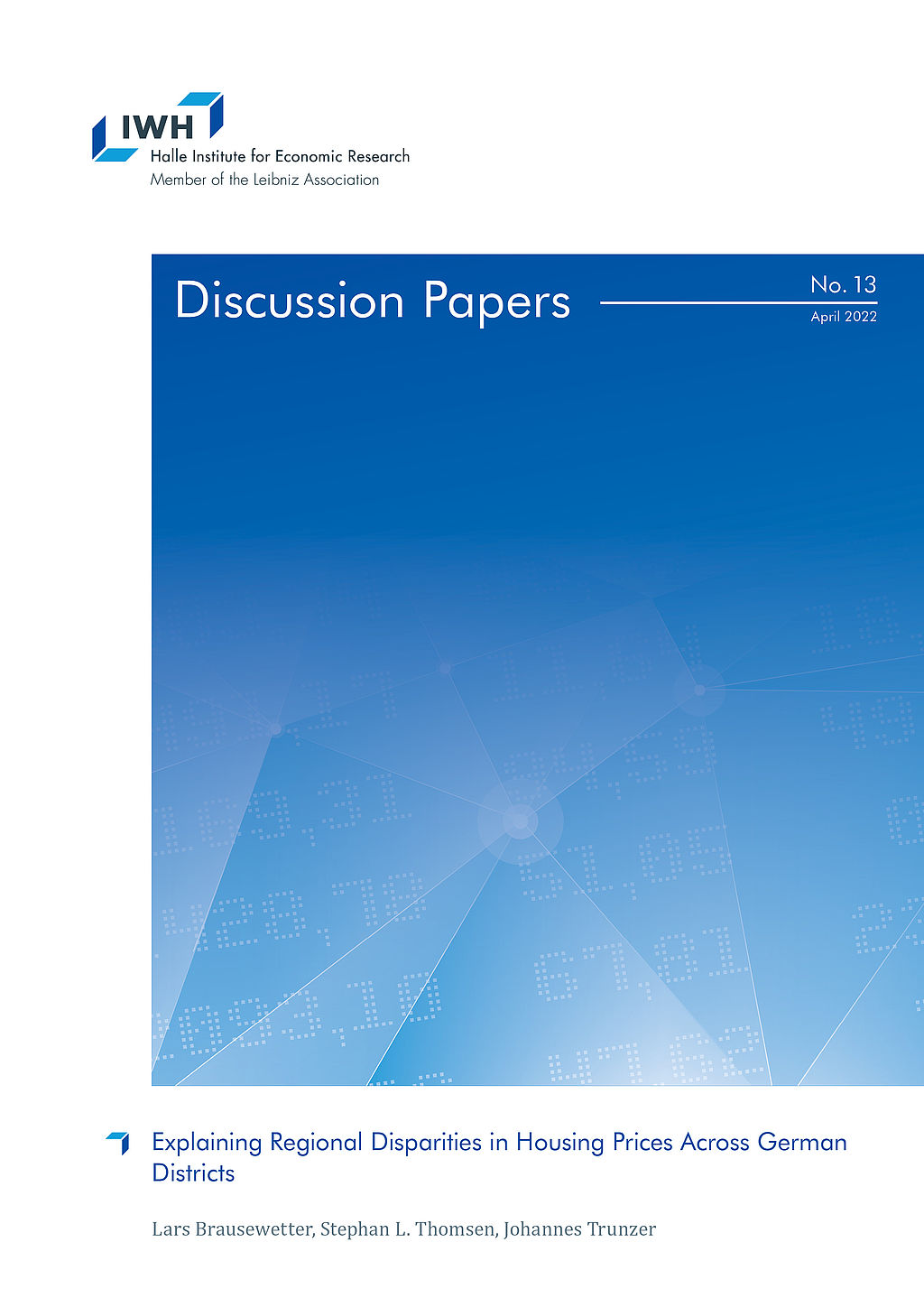
Explaining Regional Disparities in Housing Prices Across German Districts
in: IWH Discussion Papers, Nr. 13, 2022
Abstract
Over the last decade, German housing prices have increased unprecedentedly. Drawing on quality-adjusted housing price data at the district level, we document large and increasing regional disparities: Growth rates were higher in 1) the largest seven cities, 2) districts located in the south, and 3) districts with higher initial price levels. Indications of price bubbles are concentrated in the largest cities and in the purchasing market. Prices seem to be driven by the demand side: Increasing population density, higher shares of academically educated employees and increasing purchasing power explain our findings, while supply remained relatively constrained in the short term.
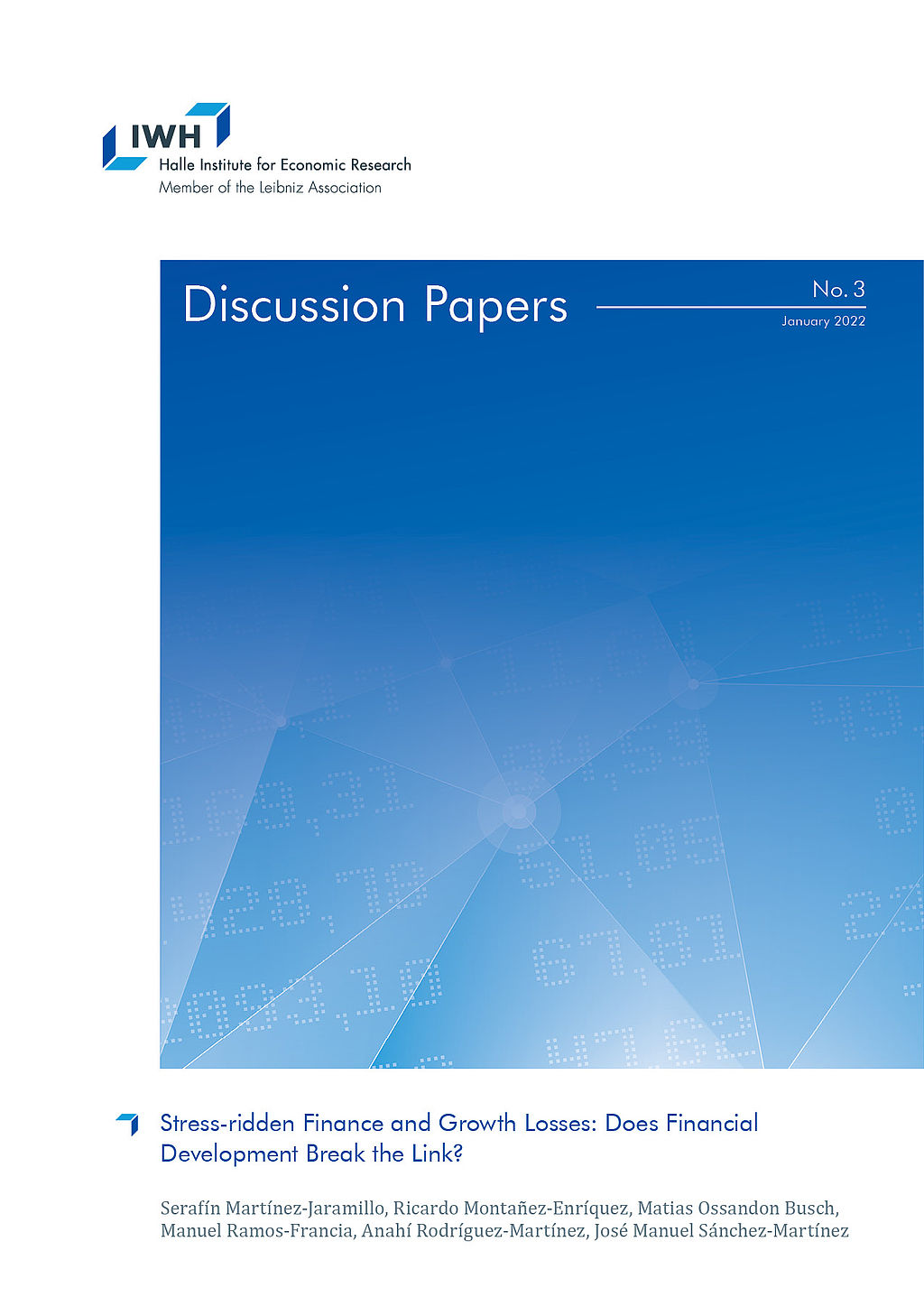
Stress-ridden Finance and Growth Losses: Does Financial Development Break the Link?
in: IWH Discussion Papers, Nr. 3, 2022
Abstract
Does financial development shield countries from the pass-through of financial shocks to real outcomes? We evaluate this question by characterising the probability density of expected GDP growth conditional on financial stability indicators in a panel of 28 countries. Our robust results unveil a non-linear nexus between financial stability and expected GDP growth, depending on countries’ degree of financial development. While both domestic and global financial factors affect expected growth, the effect of global factors is moderated by financial development. This result highlights a previously unexplored channel trough which financial development can break the link between financial (in)stability and GDP growth.














